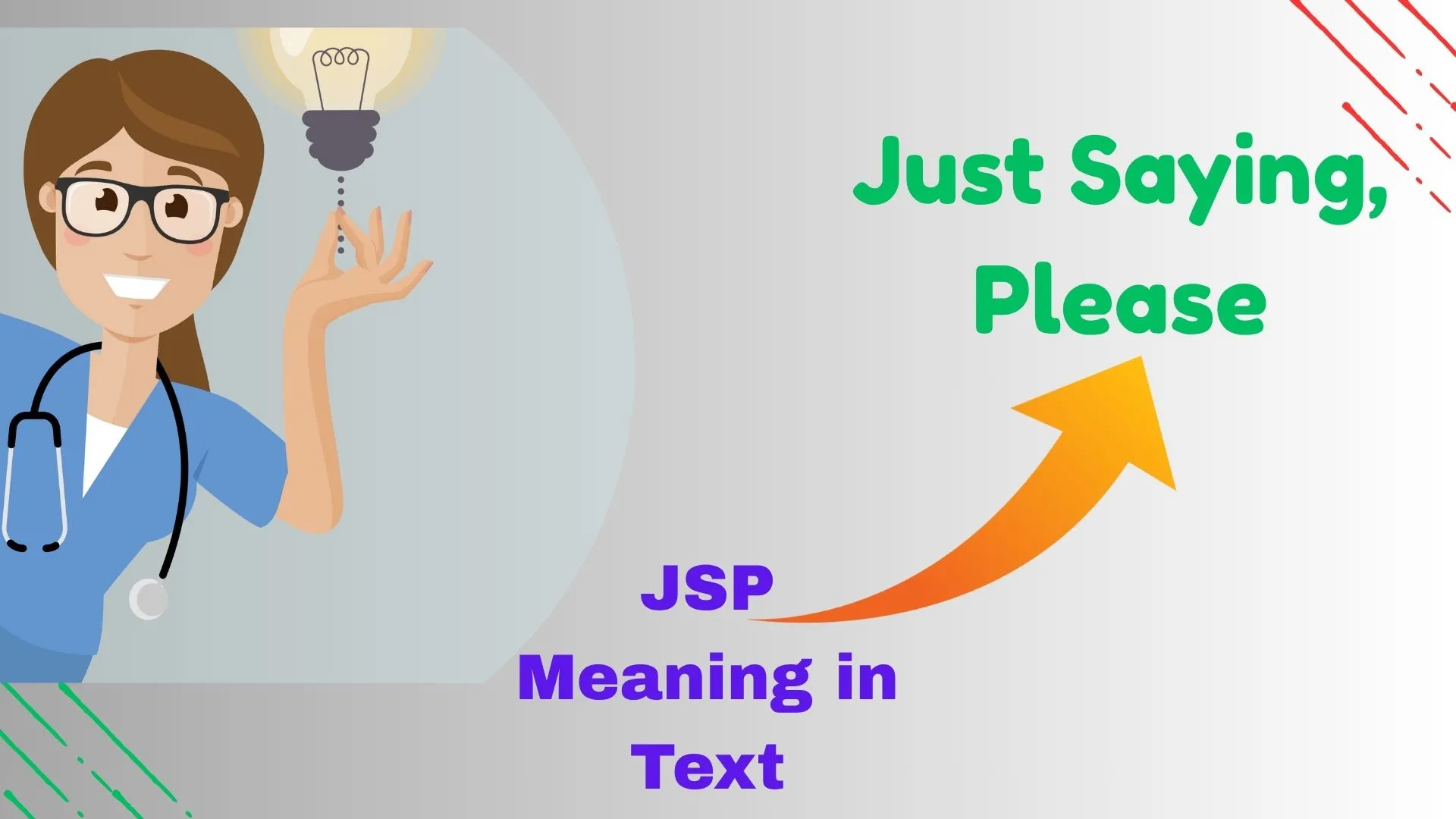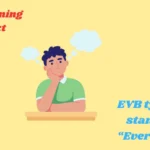Online conversations are full of abbreviations, and one of the lesser-known yet often confusing ones is JSP. If you’ve ever come across this short form in a text, on Snapchat, or Instagram, you may have wondered:
What does JSP mean in text? Unlike common acronyms like LOL or BRB, JSP can carry different meanings depending on the platform, culture, or even the person using it.
That’s why people search for it—to understand tone, intent, and context. In this article, we’ll break down every possible use of JSP in texting, social media, and even slang translations, so you can decode its meaning instantly without guessing.
By the end, you’ll know how to interpret JSP, when to use it, and what alternatives might work better in your own messages.
What Does JSP Mean in Text?
JSP most commonly stands for “Just Saying, Please” or simply “Just Saying”. It is often used to soften a statement that might otherwise sound blunt or harsh. For example:
-
“That outfit doesn’t really match, jsp.”
Here, it signals that the speaker is not trying to be offensive but wants their point heard.
However, the meaning can vary widely depending on the person, platform, and cultural background. In French, for instance, “JSP” stands for “Je Sais Pas” (I don’t know), giving it an entirely different vibe.
What Does JSP Mean on Snapchat?
On Snapchat, JSP is typically shorthand for “Just Saying”. It’s a casual way to add commentary without appearing too serious. Users often insert it after a playful remark or mild opinion. For instance:
- “You should try a different filter, jsp 😂”
JSP Meaning in Text from a Guy
When a guy uses JSP, it can signal honesty without aggression. It’s his way of adding “don’t take it the wrong way.” Example:
-
“That game was boring, jsp.”
Tone matters a lot—sometimes it’s humorous, sometimes it’s straightforward honesty.
What Does JSP Mean on Instagram?
On Instagram, JSP often appears in captions or comments. Influencers might write:
-
“Not everyone will love your vibe, jsp 💯”
It creates a casual, relatable tone that connects with followers without sounding harsh.
JSP Meaning in Text French
In French texting, JSP = Je Sais Pas (English: I don’t know). Example:
- “Tu viens ce soir ? — jsp.” (Are you coming tonight? — I don’t know.)
This meaning is very common in European and Canadian French digital conversations.
What Does JSP Mean from a Girl?
From a girl, JSP could simply mean she’s adding a lighthearted note or avoiding sounding too direct. Example:
-
“That color isn’t your best, jsp 😅”
It helps balance honesty with kindness.
JSP Meaning in Text Funny
Sometimes, JSP is used in a joking tone. Friends may add it after playful teasing:
- “You eat too much pizza, jsp 🍕😂”
Here, it’s clearly not meant to offend.
JSP Meaning TikTok
On TikTok, JSP often pops up in comments. Content creators or fans use it for commentary like:
-
“This trend is over, jsp.”
It’s part of the casual, fast-flowing slang that keeps TikTok engaging.
JSP Meaning in Text Urban Dictionary
Urban Dictionary lists multiple meanings, but the most common are:
- Just Saying, Please
- Just Saying
- French: Je Sais Pas
💡 Important Nuance: Is JSP Commonly Used?
While JSP isn’t as common as LOL or BRB, it is popular in niche groups—especially younger users, TikTok commenters, and French speakers.
Why People Use JSP: Tone and Context
People use JSP to:
- Soften criticism (avoid sounding rude).
- Express casual honesty without starting arguments.
- Add humor in light banter.
- Signal uncertainty (in French, “Je sais pas”).
When You Shouldn’t Use JSP
- In professional emails.
- When clarity matters more than casualness.
- With people unfamiliar with online slang.
15 Polite, Professional, or Casual Alternatives to “JSP”
| Alternative Phrase | Tone | Best Use Case |
|---|---|---|
| Just a Thought | Neutral | Suggesting lightly |
| No offense intended | Polite | Giving criticism |
| Only saying this because I care | Caring | Close friends/family |
| Hope you don’t mind me saying… | Gentle | Sensitive remarks |
| Not trying to be rude, just being honest | Honest | Awkward truths |
| From a different perspective… | Neutral | Debating ideas |
| Take this with a grain of salt | Humble | Personal opinions |
| Just bringing it up for consideration | Formal | Group discussions |
| Let me float an idea | Creative | Brainstorming |
| No judgment at all | Supportive | Sensitive topics |
| Just chiming in | Friendly | Group chats |
| It’s probably just me, but… | Humble | Personal views |
| You totally don’t have to agree, but… | Flexible | Discussions |
| Just for your consideration | Neutral | Formal chats |
| Merely offering a suggestion | Professional | Workplace conversations |
How to Choose the Best Alternative
Pick an alternative depending on tone (serious vs casual), relationship (friend vs coworker), and context (chat vs workplace).
Expert Tip: How to Avoid Sounding Passive-Aggressive
Avoid overusing JSP after harsh statements. Instead, frame your opinion with empathy or humor to reduce misunderstandings.
Modern Usage Trends: Are Abbreviations Like JSP Becoming Outdated?
Yes and no. Some abbreviations are fading as people type full phrases, but others, like JSP, thrive in short-form platforms (TikTok, Snapchat).
FAQs
What does JSP stand for in texting?
It usually means “Just Saying” or in French “Je Sais Pas” (I don’t know).
Is JSP rude to use?
Not necessarily—it depends on tone. It can sound passive-aggressive if overused.
Do French people use JSP often?
Yes, “Je sais pas” is very common in French texting.
What does JSP mean on TikTok?
It usually means “Just Saying” in comments or captions.
Should I use JSP in professional messages?
No. Use clearer, more polite alternatives like “Just a thought” instead.
Conclusion
The abbreviation JSP in text can mean many things—“Just Saying,” “Just Saying Please,” or even “Je sais pas” in French. Its meaning depends heavily on tone, context, and platform.
While it’s useful in casual chats or social media, it can backfire in professional settings or sensitive discussions. That’s why knowing its nuances—and having alternatives ready—can help you communicate better and avoid misunderstandings.




